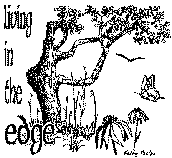The University of Wisconsin-Madison Arboretum is currently
restoring an Oak Opening consisting of approximately 16 acres. The
project is coordinated and was designed by Arboretum staff using
volunteers to conduct most of the restoration activities.
The Arboretum, funded by a grant from the Institute of Museum
Services, offered an intensive 50-hour training course for
volunteers who wished to become Team Leaders of the volunteer work
parties. A total of 22 potential leaders were chosen through an
application process which judged their interest in restoration and
their commitment to the one-year training program. Participants
agreed to match their 50-hour training with a 50-hour work
contribution as a Leader during the year following completion of the
program. Topics included in the training were: Plant identification
(desirable and undesirable species), seed collection and native
plant propagation, ecological principles, chain saw use and safety
(optional), herbicide use and safety, mechanical methods of control,
and leadership training. Training was a mixture of classroom and
hands-on experiences.
Approximately 15 of the original participants finished the
training and are working as Leaders. In general, we found the
program to be a success. However, in future programs, we will make
the responsibilities and training more limited in scope. Some work,
such as plant propagation, requires Leaders with more specialized
training than they received in the pilot program. In the future,
participants will concentrate on mastering fewer skills. This
approach would involve intermixing more extensive hands-on field
training with the classroom experience, or selecting only those
people who have previous workparty experience.
 |
 |
|
| |

|
|
|



![]()
![]()
![]()